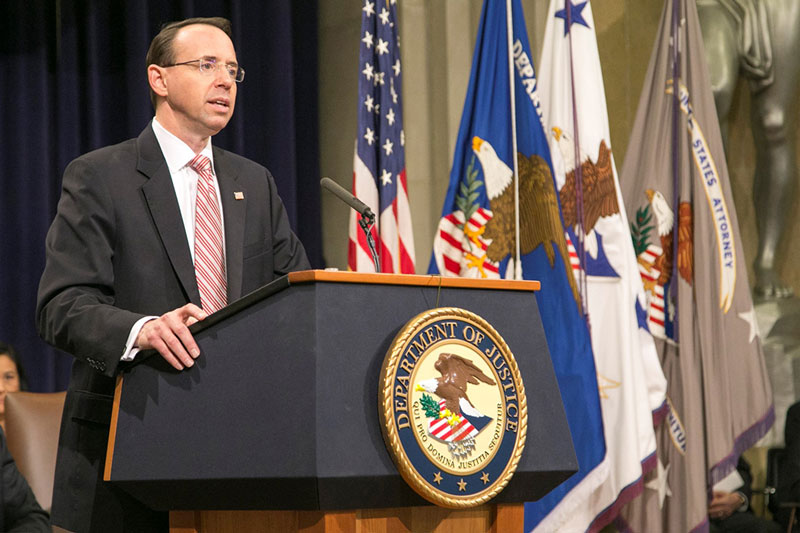Deputy Attorney General, Rod Rosenstein, in a speech to the Naval Academy on Monday, warned that the strong encryption built into the handheld devices is one of the most serious obstacles that law enforcement currently faces when confronting terrorism and organized crime.
Rosenstein says that the “warrant proof” system of encryptions used in most smartphones can restrict the court’s ability to access evidence and intelligence. He characterized the problem as, “one of our greatest challenges.” Encryption is a way to scramble and code information so that it cannot be understood or decoded without the proper digital authorizations.
Rosenstein, a member of the Trump administration explained, “Warrant-proof encryption defeats the Constitutional balance by elevating privacy above public safety. Encrypted communications that cannot be intercepted and locked devices that cannot be opened are law-free zones that permit criminals and terrorists to operate without detection by police and without accountability by judges and juries.”
The deputy attorney general calls for a “responsible encryption,” which would allow information to be accessed under proper court orders. Many digital privacy advocates have powerfully made the case that strong encryption is needed to prevent rights abuses by governments, even as they acknowledge the ability of organized crime and terrorist organizations to use these techniques as well.
Rosenstein recalled that the first large-scale public debate on this issue was first triggered by the terrorist attack in San Bernardino, California in 2015, by Rizwan Farook and Tashfeen Malik. Two Muslims that went on a 14-person killing spree, which also injured an additional 22 people.
The iPhone that was used by the shooter, Farook, was locked, and hence it prevented FBI to find out if any further attacks were planned. FBI had to obtain the consent of the phone’s legal owner, of the San Bernardino county government and obtained a search warrant too.
However, built-in Apple encryption blocked the access and Apple took the leverage and turned down the government’s request to voluntarily decrypt the phone’s data for the evidence and data on the terrorists. Apple also fought the court order that required the company to cooperate, despite having the technical capability to break the encryption. Later, a private security firm was able to obtain the encrypted data from the smartphones for the FBI.
“Today, thousands of seized devices sit in storage, impervious to search warrants,” Rosenstein says, “Over the past year, the FBI was unable to access about 7,500 mobile devices submitted to its Computer Analysis and Response Team, even though there was legal authority to do so.” He concluded, “much of that infrastructure is being targeted by criminals and foreign adversaries.”
Some 95% of all Americans own a cell phone and further in, more than a three-fourth of the total owns a smartphone. Nearly 70% of Americans use the social media networks like Facebook and Twitter.























